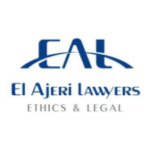-
Overview
The Irish commercial real estate (“CRE“) market has shown signs of recovery and resilience throughout 2024, following a challenging period in 2023. 2024 has been marked by a notable uptick in transactional activity, driven by improved financing conditions and a more favourable macroeconomic environment. The market has seen an increase in investment volumes, particularly in the retail and logistics sectors, and a resurgence in investor confidence.
Market Recovery and Transaction Activity
The Irish CRE market has experienced a notable recovery in 2024, with investment volumes showing a marked improvement compared to the previous year. Investment spend in Q3 of 2024 alone totalled nearly €600 million, the best performing quarter since Q1 2023. On a year-to-date basis, €1.3 billion of transactions have been completed, indicating a positive trend towards market stabilization.
Sector-Specific Trends
Retail Sector: The retail sector has emerged as the most popular sector in 2024, accounting for 34% of all capital deployed. This resurgence is attributed to steady occupier demand and rental growth, making retail an attractive option for investors. Notable transactions include Eagle Street’s purchase of The Square Tallaght for €130 million and Iroko Zen’s acquisition of Kilkenny Retail Park for €25 million. Several new international retailers are making their debut in the Irish market, such as the Swedish brand Arket and the Chinese brand Icicle, which launched its first Irish store earlier in 2024. High-end retail centres experienced robust performance in 2024, with the Falcon AM managed Blanchardstown Centre performing particularly strongly, securing new lettings with prominent brands such as Hobbs London, Calvin Klein, Brown Thomas and a new flagship North Face store over the past year.
Industrial & Logistics Sector: The industrial and logistics sector has also performed strongly, with significant investments such as the sale and leaseback of Primeline Group’s warehousing units acquired by Deka Immobilien. The demand for logistics space remains robust, particularly in prime developments such as Horizon Logistics Park, driven by low vacancy rates and rental growth.
Office Sector: Liquidity in the office sector has improved, with nearly €145 million deployed in Q3 2024. The most significant leasing transaction of the quarter occurred at Two Wilton Park, where EY entered into a new long-term lease of Grade A+ space. The demand from occupiers remains predominantly focused on Grade A+ sustainable spaces in Dublin city centre, and the availability of such premium stock in prime locations is beginning to diminish. Nearly 60% of all space taken up in Q3 consisted of areas with a BER rating of at least A3, coupled with strong LEED or BREEAM credentials. A two tier market continues to emerge in Ireland between prime Grade A stock and secondary older assets with the energy efficiency of a property significantly impacting on its value and attractiveness for both occupiers and investors.
Residential and Student Housing: While direct investment in the residential sector remains constrained, there has been strong competition to lend on Irish residential assets. The sale of Scape Student Living for €80 million and the ongoing interest in the Point Campus student housing development in Dublin underscore the sector’s potential. The pent-up demand for housing stock across all tenures, including private rental apartments and student housing, remains a critical factor driving market dynamics.
Emerging Trends
Interest Rates and Financing Conditions: The ECB’s interest rate cuts in June, September and October 2024 have contributed to falling debt costs, aiding the recovery in transactional activity. The EURIBOR swap rate (5-year term) has fallen to 2.12%, making financing more accretive and supporting real estate valuations.
ESG Considerations: Environmental, Social, and Governance (“ESG“) considerations continue to play a crucial role in the Irish CRE market, particularly with the Recast Energy Performance of Buildings Directive (the “EPBD“) entering into force in May 2024. There has been a notable increase in transactions driven by ESG-related elements, with stakeholders focusing on energy efficiency and sustainability. Investors and occupiers are prioritising sustainable, low-carbon buildings. The implementation of green leases and adherence to ESG-focused legislative requirements are becoming standard practice, ensuring that real estate portfolios are future-proofed against evolving market pressures. Over the past two years in particular our Real Estate and Construction team has seen a notable increase in transactions where ESG related elements have been central to the deal. We have been focused on assisting our clients ensure their respective real estate portfolios fully comply with the latest ESG policies and procedures in line with best practice.
One of the biggest challenges in real estate development is bringing ESG from concept to delivery. While understanding legislative requirements is the first step, stakeholders must then implement ESG strategies and obligations downstream. The Dublin based Real Estate and Construction team at Maples Group understand that the ESG landscape effects all stakeholders differently over the life-cycle of a project and that each stakeholder is impacted by different market pressures. We advise our clients on topics such as:
- Managing ESG requirements in contractual documentation such as building contracts, loan agreements and leases;
- Understanding mandatory and optional building certifications and standards across all the construction sectors including office, residential, industrial, retail and health;
- Implementing modern methods of construction and use of other construction technologies; and
- Keeping track of the ever-evolving legislative framework and best-in-class market approach
We have been at the forefront on the implementation of green leases in Ireland, in order to ensure our client’s real estate portfolios are future proofed against changes to ESG-focused legislative requirements and volatile energy and development costs. Such measures also assist to ensure our client’s real estate assets will continue to achieve greater energy efficiency, resulting in lower greenhouse gas emissions and lower energy bills and that both landlord and tenant parties comply with ESG sustainability commitments and particularly with their respective statutory requirements.
In summary, 2024 has been a year of recovery and optimism for the Irish commercial real estate market. Improved financing conditions driven by the next phase of the monetary cycle, strong sector-specific performance particularly for retail and logistics and a continued focus on ESG considerations have all contributed to a more positive outlook for 2025. The underlying fundamentals of the Irish economy remain robust, providing value-seeking investors with opportunities to acquire reliable income-producing real estate assets at attractive yields, particularly in sectors such as retail and logistics. As we look ahead, the market is well-positioned to continue its upward trajectory, offering promising prospects for investors and stakeholders alike. At Maples Group, we are committed to helping our clients capitalise on these opportunities and achieve their investment objectives in the dynamic Irish CRE market.
-
What is the main legislation relating to real estate ownership?
Irish law was historically based on old legislation which predates the establishment of the Irish State in 1922, such as the Conveyancing Acts, 1881–1911 and the Settled Land Acts, 1882–1890. The Land and Conveyancing Law Reform Act 2009 (the “2009 Act“) replaced much of the old law, including the pre-1922 statute law and modernised the law and conveyancing practice. There is modern legislation governing registration of title (the Registration of Deeds and Title Acts 1964 and 2006) to facilitate the increasing digitisation of the property registration system in this jurisdiction and succession law (the Succession Act, 1965).
There is extensive statutory protection afforded to family property in particular, which affects conveyancing practice (e.g. the Family Home Protection Act, 1976 and the Civil Partnership and Certain Rights and Obligations of Cohabitants Act 2010). This is partly due to the fact that Ireland has a written Constitution enshrining certain fundamental rights which override any other law, including legislation.
-
Have any significant new laws which materially impact real estate investors and lenders come into force since December 2023 or are there any major anticipated new laws which are expected to materially impact them in the near future?
One change which will be of interest to real estate investors and lenders is the introduction of the Planning and Development Act 2024 (the “2024 Act“). The 2024 Act consolidates and revises the law relating to planning and development and will bring greater clarity, consistency, and certainty as to how planning decisions are made.
The reforms under the 2024 Act include:
- significant restructuring and reorganising of the current planning appeals board, An Bord Pleanála (the “Bord”), which will be renamed An Coimisiún Pleanála;
- the introduction of statutory timelines for decision-making, including for An Coimisiún Pleanála;
- new strategic ten-year development plans for local authorities;
- reform of the planning Judicial Review; and
- new provisions for urban development zones.
When an area is designated as an urban development zone, a planning and delivery scheme can be implemented for the area. Importantly, this designation limits the actions landowners can take with their property within these zones. The goal is to ensure that the land is consolidated and developed in line with the established planning and delivery scheme.
Another significant new piece of legislation in the real estate space will be the Energy Performance of Buildings Bill. The recast EPBD is to be transposed into Irish law by May 2026 and heads for the bill are currently in preparation. The standout changes in the recast EPBD are the introduction of the Zero-Emission Building (” ZEB“) standard and Minimum Energy Performance requirements. A ZEB is a building with a very high energy performance that has a significant part of its energy requirements met by renewable sources, which are ideally produced onsite or nearby. The ZEB standard builds on the existing Nearly Zero-Energy Building(“NZEB“) standard (which is the current standard for all new buildings since December 2020). The recast EPBD requires all new buildings to be ZEBs by 2030 and all existing buildings ZEBs by 2050, starting with new public buildings by 2028. The EPBD also introduces a harmonised EU system of Energy Performance Certificates (“EPCs“) that rate buildings from A (ZEB) to G (the worst performing). EPCs will replace the current BER certification and are to be introduced by 29 May 2026. Member States must set minimum energy performance standards. For non-residential buildings 16% of the worst performing buildings will need to be renovated by 2030 and 26% by 2033.
-
How is ownership of real estate proved and are ownership records available for public inspection?
Tailte Éireann is the State body responsible for the registration of property transactions in Ireland and the system of registration of title (ownership) to land in Ireland, following the dissolution of the Property Registration Authority pursuant to the Tailte Éireann Act 2022.
One of the main functions of Tailte Éireann is to manage and control the two registries for land ownership in Ireland, namely the Land Registry and the Registry of Deeds, and to promote and extend the registration of ownership of land.
The Registry of Deeds provides for a system of voluntary registration for deeds affecting land (as opposed to title to land) and to give priority to registered deeds over unregistered but registrable deeds. There is no statutory requirement to register a document in the Registry of Deeds, but failure to do so may result in a loss of priority. The effect of registration is generally to govern priorities between documents dealing with the same piece of land. The primary function of the Registry of Deeds is to provide a system of recording the existence of deeds affecting unregistered property (i.e. property which is not registered in the Land Registry). When a deed is lodged in the Registry of Deeds it must be accompanied by the relevant application form (in a prescribed form) which is a summary of the essential information of the relevant deed. The registration of a deed in the Registry of Deeds is not proof of ownership. The underlying title must be fully investigated in order to determine ownership and whether a property has a “good and marketable title”.
Where title to a property is registered its ownership is registered with Tailte Éireann, the deeds are filed with Tailte Éireann and all relevant particulars concerning the property and its ownership are entered on folios which form the registers maintained by Tailte Éireann. Once a folio is opened with Tailte Éireann in respect of a particular piece of property that property is then referred to as “registered property”. In conjunction with folios, Tailte Éireann also maintains maps (referred to as title plans). Both folios and maps are maintained in electronic form. Owners of registered real estate generally prove their title via the Tailte Éireann folio, which is prima facie evidence of title. The legal owner of the registered property is recorded in part 2 (the ownership section) of the folio. A title registered with Tailte Éireann is guaranteed by the State. Tailte Éireann indemnifies any person who suffers loss through a mistake made by Tailte Éireann. A buyer, therefore, can accept the folio as evidence of title. However, the State does not guarantee the conclusiveness of boundaries or the area of the relevant property as identified on the title plans.
Any unregistered property (Registry of Deeds) purchased in the State after 1 June 2011 is subject to compulsory first registration with Tailte Éireann. Registration is also compulsory where land is bought under the Land Purchase Acts or where land is acquired by a statutory authority after 1 January 1967.
-
Are there any restrictions on who can own real estate, including ownership by any foreign entities?
There are no legal restrictions on the ownership of real estate in Ireland. However, anti-money laundering legislation requires that a number of checks be carried out on a potential buyer, and the identity of the buyer, the source of funds and the ability to fund the acquisition of real estate will need to be verified.
-
What types of proprietary interests in real estate can be created?
Irish property can be held under freehold title which confers absolute ownership, or under leasehold title which confers ownership for the period of years granted by the relevant lease and held from the owner of the freehold or the owner of the superior leasehold title in the relevant property. A leasehold interest is based on a contractual relationship between the lessor/landlord and the lessee/tenant. During the term of a lease the freehold owner/lessor holds a reversionary interest only, known as the “freehold reversion” and the lessee holds the leasehold interest, being the valuable interest in the property. On the expiry of the term of the lease the title reverts to the freehold owner unless the leasehold owner has a right to acquire the freehold interest in the property and exercises this right. This right is only exercisable when certain criteria are met as set forth in the Landlord and Tenant (Ground Rents No.2) Act 1978 as amended by the Landlord and Tenant (Ground Rents) (Amendment) Act 2019.
-
Is ownership of real estate and the buildings on it separate?
Real estate in Ireland comprises all immovable property. This includes land and any buildings or fixtures on the land. No distinction is made between title to land and title to buildings where they are in the same ownership.
Typically, the owner of land is also the owner of any buildings erected on the land. However, it can be the case that one party owns the freehold interest in a property and another party holds a long leasehold interest in the same property. While the reversionary freehold interest in such circumstances would only have a residual monetary value, it would usually benefit from certain restrictive or behavioural covenants on the part of the lessee under the long lease of the property in question.
-
What are common ownership structures for ownership of commercial real estate?
Ownership structures for commercial real estate in Ireland range from direct ownership by individuals, corporate entities, co-ownership structures and limited partnerships.
Institutional investors historically used Irish-regulated funds such as Qualifying Investor Alternative Investment Funds (“QIAIFs“) for Irish real estate transactions. QIAIFs are regulated by the Central Bank of Ireland (“CBI“).QIAIFs are typically established as Irish Collective Asset- management Vehicles (“ICAVs“).
Historically, regulated funds such as the ICAV offered some tax advantages. However, an ICAV is now generally subject to a 20% withholding tax on profit distributions and is exposed to a deemed income tax charge of 20% if it has debt costs above certain thresholds. While ICAVs remain common their popularity for Irish real estate investment has decreased in recent years.
International investors frequently use non-Irish resident structures, such as Luxembourg companies to acquire Irish real estate.
Irish resident investors typically utilise Irish resident companies, or limited partnerships. There are many different types of Irish companies, the ones most commonly used to acquire Irish real estate are the Private Company Limited by Shares (“LTD“), the Designated Activity Company (“DAC“) and the Public Limited Company (“PLC“). A LTD has full capacity to undertake all activities without restriction. A LTD may have a single director. In contrast to a LTD there are restrictions on the activities that a DAC may undertake. The constitutional documents of a DAC set out the activities it is authorised to carry out. DACs must have at least two directors. Some institutional investors also use PLCs to acquire Irish real estate. A PLC is a company which is publicly listed on the Stock Exchange. PLCs must have at least two directors. A LTD, a DAC and a PLC are all separate legal entities and have the capacity of a natural person and may sue or be sued in their own names.
The use of Irish limited partnerships has increased in recent years, as investors seek to benefit from the flexibility of partnership taxation. A limited partnership is comprised of at least one general partner and one limited partner. In contrast to a company a partnership does not have a separate legal personality. A general partner is liable for all debts of the partnership while a limited partner is liable for its contribution only. Frequently the general partner is itself a LTD. A LTD, DAC, PLC and a limited partnership must be registered with the Companies Registration Office (“CRO“).
Real Estate Investment Trusts (“REITs“) are a type of PLC and were introduced in 2013 as a new vehicle for investment. Subject to meeting certain criteria, a REIT will not be liable to either Corporation/ Income Tax on its property rental income or property profits, or Capital Gains Tax on disposals of assets of its property rental business. The shares in a REIT must be listed on the main market of an EU Stock Exchange within 3 years of the REIT commencing. REITs must also be registered with the CRO. There is only one Irish REIT remaining in the market, since a number have been acquired by third parties and ceased to be listed companies.
-
What is the usual legal due diligence process that is undertaken when acquiring commercial real estate?
To ensure consistency in drafting and to avoid protracted negotiations, the Law Society of Ireland produces a pro forma contract for sale for use in real estate transactions, which is designed to be fairly balanced between buyers and sellers.
The contract for sale:
- contains a memorandum of the agreed terms of the sale (the parties, price, description of property, and completion date),
- lists the documentation and searches to be provided by the seller, and
- incorporates the Law Society of Ireland General Conditions of Sale (the “General Conditions“), the current edition of which are the Conditions of Sale 2023 (Revised) Edition. The General Conditions make a number of assumptions about the property and place certain disclosure obligations on a seller, which the seller can only exclude by inserting special conditions into the contract for sale. In this way, the buyer is on notice of any deviations from the standard contract.
By virtue of the General Conditions the seller gives various contractual warranties in respect of the property for sale. It is typical for a seller to limit the scope of warranties through the careful drafting of special conditions in the contract for sale. This is particularly the case in respect of commercial property or where the seller’s knowledge of the property is limited, for example, a sale by a receiver, liquidator or mortgagee. Despite the existence of warranties, a prudent seller (or its legal advisers) will still carry out its own legal due diligence of the property as the principle of “caveat emptor” (buyer beware) is at the heart of commercial property transactions. A buyer’s lawyer will investigate the seller’s title to the relevant property to ensure a buyer will acquire a good and marketable title. The 2023 (Revised) General Conditions require the buyer to investigate and satisfy itself as to the title to the property pre-contract. The buyer’s lawyer also carries out a number of searches against both the seller and the property as well as a review of the planning position in relation to the asset and evidence of compliance with building control regulations. The seller must explain and/or discharge any adverse matters resulting from the searches which affect the seller and/or the relevant property before the completion of the sale can occur.
-
What legal issues (if any) are outside the scope of the usual legal due diligence process on an acquisition of real estate?
There are certain legal issues that may only be identified through a physical inspection of the property in sale such as environmental issues, issues with access and services, and unknown occupants as well as issues of technical compliance with the planning laws and building control regulations. Best practice is for the buyer to arrange for a professional survey and valuation of the property in sale to be carried out. Depending on the nature of the asset a buyer may also wish to engage a planning consultant to carry out planning and building regulations due diligence and/or an environmental expert to carry out environmental due diligence where compliance with environmental laws is a concern.
-
What is the usual process for transfer of real estate, and when does liability pass to the buyer?
The relevant property is usually marketed on behalf of the seller by an agent who advertises the property and advises on the market value of the property. In commercial real estate transactions, the parties often appoint agents to act on their behalf and the commercial terms are negotiated between the parties and their respective agents. Once the commercial terms are agreed, they are recorded in a non-binding heads of terms document.
Between heads of terms being agreed and a binding contract being signed, the parties may put in place exclusivity agreements and confidentiality agreements (which is becoming more widespread in the sale of commercial real estate). A seller’s lawyer is responsible for drafting contracts, dealing with pre-contract enquiries raised by the buyer’s lawyers, replying to requisitions on title, redeeming mortgages/charges affecting the property and distributing the balance of sale proceeds to the seller. A buyer’s lawyer investigates the title, raises requisitions on title, drafts the purchase deed, conducts closing searches, attends the closing appointment and stamps and registers the title.
Surveyors and/or architects may be engaged before the buyer signs the contract to carry out a structural survey of the relevant property. As mentioned at 10 above depending on the nature of the asset, an environmental expert may also be engaged to provide an environmental report in respect of the property.
In the sale of commercial real estate asset portfolios, the commercial and legal due diligence is frequently facilitated by providing interested parties with access to information contained in an online data-room. Before access is granted, the interested parties will typically be required to execute a non-disclosure agreement.
Liability generally passes to the buyer on the completion of the sale and the provision of the purchase deed to the buyer.
-
Is it common for real estate transfers to be effected by way of share transfer as well as asset transfer?
In an Irish context, share transfers are not a common method of transferring real estate. However, it is possible for real estate transfers to be effected by share transfers as well as by asset transfers. Stamp duty on commercial property asset transfers is currently 7.5%, while stamp duty on share transfers is generally 1%.
However, transfers of the shares of corporate entities and partnerships can be subject to 7.5% stamp duty where the entity derives over 50% of its value from Irish land which is intended for development, held as trading stock, or held with the sole or main object of realising a gain on disposal. This provision is subject to a number of conditions, including that the transfer is one which transfers control of the land in question.
Transfers of entities holding certain residential property can be subject to a 15% rate of stamp duty. These measures are intended to discourage large scale residential acquisitions.
In cases where there is a proposed acquisition or sale of real estate through a corporate transaction, there is a need for the parties to consider whether there is a latent tax charge in the entity being acquired. The presence of such a tax charge is frequently cited as a reason why corporate transfers are relatively uncommon.
-
On the sale of freehold interests in land does the benefit of any occupational leases and income derived from such lettings automatically transfer to the buyer?
Yes, the benefit of any occupational leases and the income deriving from those leases automatically transfers on the sale of a freehold interest.
-
What common rights, interests and burdens can be created or attach over real estate and how are these protected?
Common rights, interests and burdens that can be created or attach over real estate include mortgages and charges, leases, easements, wayleaves and covenants (both positive and negative).
In the case of registered land, there are certain rights which must be registered with Tailte Éireann in order to gain protection; otherwise these rights will not be protected against a bona fide buyer for value without notice (e.g. rights of residence, restrictive covenants and leases for a term exceeding 21 years). There are also a number of burdens which affect registered land without registration, such as public rights, the rights of individuals in occupation and tenancies for terms not exceeding 21 years. Such burdens are known as “section 72 burdens” as they are dealt with by section 72 of the Registration of Title Act 1964.
In the Registry of Deeds (unregistered land), priority is determined by the serial number allocated to the instrument. Registered instruments have legal priority over unregistered instruments or instruments registered later in time. An exception applies where the owner of a registered instrument had actual notice of a prior unregistered or unregistrable instrument.
-
Are split legal and beneficial ownership of real estate (i.e. trust structures) recognised?
There is a split between legal title and beneficial ownership of property in Ireland. The 2009 Act provides that the entire beneficial interest in a property passes to the buyer on the exchange of an enforceable contract for the sale or other disposition of land (unless the provisions of the 2009 Act are disapplied). The legal interest then transfers once the Deed of Assurance is executed. The beneficial interest in property can also be held through a traditional “off-title” trust.
In respect of registered land, Tailte Éireann does not recognise a split between legal title and beneficial ownership and only the legal owner of property will be recorded in part 2 (the ownership section) of the folio. A beneficial owner may, however, protect his or her interest in the property by registering a caution or an inhibition against the folio in question. The purpose of a caution is to obtain notice of dealings by the registered owner so that the cautioner has an opportunity to assert his or her unregistered right(s). An inhibition, on the other hand, operates as a restriction on registration that prevents all registrations except those made in compliance with the terms thereof.
-
Is public disclosure of the ultimate beneficial owners of real estate required?
There is no requirement for the public disclosure of the ultimate beneficial owners of real estate. Since 2019, businesses in Ireland have been obliged to disclose details of the beneficial ownership of that business for inclusion on Ireland’s Central Register of Beneficial Ownership. The European Union (Anti-Money Laundering Beneficial Ownership of Trusts) Regulations 2021 (the “2021 Regulations“) replaced the 2019 regulations previously in place and require trustees of express trusts, including trusts of land to maintain a beneficial ownership register which records the details of each beneficial owner, and to register details of each beneficial owner with the Irish Revenue Commissioners which maintains this information on the Central Register of Beneficial Ownership of Trusts. Members of an Garda Síochána, FIU Ireland (Ireland’s Financial Intelligence Unit), the Revenue Commissioners and the Criminal Assets Bureau have a right to inspect the Central Register. They may share the information they gather from the Central Register, on request, with their counterparts in other EU Member States.
-
What are the main taxes associated with real estate ownership and transfer of real estate?
Capital Gains Tax
The sale of Irish real estate, or of unquoted shares in companies deriving the greater part of their value from Irish real estate, will be subject to Irish capital gains tax. The current rate is 33%. The gain is calculated on the proceeds of sale less acquisition and enhancement costs, and less the incidental costs of acquisition and the incidental costs of disposal.
Irish capital gains tax in connection with real estate is subject to a withholding procedure. The buyer must generally withhold 15% of the consideration and pay this amount to Revenue unless the seller provides a tax clearance certificate from Revenue. A clearance certificate is automatically available on application to Revenue if the seller is resident in Ireland for tax purposes. A non-resident seller will need to agree and discharge its capital gains tax liability in order to obtain a clearance certificate. This withholding procedure only applies to a buyer where the consideration payable to the seller exceeds the relevant threshold current at the date of the transfer agreement (currently €500,000 or €1,000,000 if the asset disposed of is residential property).
A capital gains tax exemption applies to disposals of land acquired between 7 December 2011 and 31 December 2014 (inclusive), provided the land was held for at least four and up to seven continuous years. The relief applies to residential and non-residential real estate located within any EEA state acquired by an Irish resident during the period set out above.
Stamp Duty
Ireland also imposes stamp duty on transfers of Irish real estate and certain other property. The stamp duty is charged on the consideration payable for the property, or the market value in certain instances. Stamp duty is generally payable by the buyer, although in certain transactions, such as voluntary transfers, both parties to a contract can technically be liable. There are provisions which apply to contracts to acquire land, as opposed to actual transfer documents, in cases where there is a “resting on contract” position.
The rate of stamp duty on transfers of residential property is 1% on consideration up to €1,000,000, 2% on the next €500,000 and 6% on any balance consideration. Since October 2024 where ten or more residential units are acquired in a twelve month period an increased rate of 15% stamp duty applies to all units acquired. The increased rate applies equally where multiple units are acquired in one complex or estate and where units are in different locations across Ireland. This provision applies to residential units comprising individual dwellings such as houses and duplexes and is not designed to apply to apartments. Exemptions and refunds of the 15% rate are available where the property is leased to a local authority or used for social housing purposes.
The stamp duty rate on transfers of non-residential (commercial) property is 7.5%.
Ireland operates a “Residential Development Stamp Duty Refund Scheme”; where non-residential property is transferred and is subsequently utilised for construction of residential accommodation, a stamp duty refund is available which reduces the stamp duty rate to the applicable residential rate. This scheme is due to end on 31 December 2025.
VAT
The sale of Irish real estate may be subject to Value Added Tax (“VAT“). As there are many variations and exemptions under the current Irish VAT regime, the VAT treatment should be addressed by the appropriate professional advisors pre-contract with the final agreed position reflected in the contract.
Broadly, the sale of land which has been developed in the previous 20 years, or buildings which have been developed or redeveloped in the previous five years (referred to as “new” property) will be subject to VAT. The sale of “old” property which falls outside these rules is exempt from VAT. In certain cases, where a sale would otherwise be exempt, the buyer and seller can agree that the sale will be subject to VAT in order to avoid a clawback of VAT previously recovered in respect of the relevant property by the seller. The first sale of residential property by the person who developed the property is always subject to VAT.
The rate of VAT on transfers of real estate is 13.5%. A VAT rate of 23% applies to VATable lettings.
Tax on Rental Income
Irish rental income is generally taxed at 25% where the lessor is a taxable Irish company. Historically, a non- resident company was subject to a lower tax rate (20%) but since 1 January 2022, non-resident companies are also subject to tax at 25%.
In 2023, a specific tax exemption was introduced for landlords who rent their property for four years. Rental income of €3,000 for the year 2024, €4,000 for the year 2025 and €5,000 for the years 2026 and 2027, will be disregarded at the standard rate. The exemption equates to a tax credit of €600 in 2024, rising to €1,000 in 2026. The landlord must have a tax clearance certificate, comply with Local Property Tax and be registered with the Residential Tenancies Board. The properties held by the landlord availing of the relief must remain in the rental market for four years, otherwise the full amount of the relief will be clawed back.
Non-resident Landlord Withholding Tax
A lessee of Irish land is required to withhold 20% from rental payments to a non-resident landlord. If an Irish collection agent has been appointed by the lessor, the collection agent is either liable for tax on the rent or, since 1 July 2023, can withhold 20% of the rent and pay it to Revenue.
Local Property Tax (“LPT”)
Irish residential property is subject to LPT, which is applied at a specified rate by reference to the value of the property.
Additional Taxes
The Vacant Homes Tax (“VHT“) is a self-assessed tax, which applies to residential homes which can be lived in but which have been used as a dwelling for less than 30 days in a chargeable period (the current chargeable period being 1 November 2024 to 31 October 2025). If the property does not qualify for any of the permitted exemptions, then VHT must be paid by the party who pays LPT on the property, usually the owner. Under the Finance Bill 2024, the rate of VHT increased to 7 times the rate of LPT and applies for the chargeable period 1 November 2024 to 31 October 2025).
Residential Zoned Land Tax (“RZLT“) was introduced in the Finance Act 2021. It is due to come into effect on 1 February 2025. This annual tax will be charged on lands which are zoned for residential use and which are properly serviced (i.e. with roads, footpaths, lighting, access to water supply and services including drains and sewers). Local authorities have been tasked with the preparation of maps showing lands within the scope of RZLT. The rate of RZLT is 3% of the market value of the land.
-
What are common terms of commercial leases and are there regulatory controls on the terms of leases?
The term of a lease of business premises has traditionally ranged from short-term up to 35 years, but recent legislative changes and market forces are resulting in shorter term leases, with the maximum term now being 15–20 years (typically including break options exercisable during the term). The structure of a typical medium to long-term commercial lease usually follows the same traditional format which, in addition to securing rent payments to the landlord, also passes the cost of maintaining, insuring, and occupying the relevant property from the landlord to the tenant. This allows the landlord to enjoy the rent without deduction.
In certain cases, tenants will seek to negotiate an option to break or terminate the term of the lease after a certain period of time, i.e. after five or ten years of the term. Any business lease granted for a term in excess of five years would typically have a provision for the periodic review of rent on a five yearly basis to the then current open market rent.
Most business leases in Ireland are of a full repairing and insuring nature, whereby the tenant is subject to extensive repairing obligations. These may be imposed directly by a repairing covenant entered into by the tenant or, in the case of a multi-let development like an office block, shopping centre or business park, indirectly through a service charge regime which would include reimbursing the landlord for repair works carried out to the structure and common areas of the relevant development.
Usually the provisions of a business lease place restrictions on a tenant’s contractual right to assign or sub-let without the landlord’s prior written consent.
Under Section 66 of the Landlord and Tenant (Amendment) Act, 1980, a landlord cannot unreasonably withhold consent to an assignment or sub-letting of the entirety of a premises and this provision overrides the contractual terms of any business lease.
Sharing a business premises with companies in the same corporate group is generally a matter for negotiation between the landlord and tenant but it is commonplace for leases to have a provision permitting such sharing of occupation, subject usually to a requirement to notify the landlord and provided that the sharing is by way of licence only and no Landlord and Tenant rights accrue for the sharing entity. While landlords may agree on request to provisions allowing sub-letting to or sharing space with a group company without consent, it is rare that a landlord will permit assignment to a group company without consent.
It is less common to see provisions in a lease relating to reorganisation or change of control of the tenant.
Normally, there are no restrictions on the change of control of a tenant company included in a lease.
Commercial business leases are freely negotiated subject only to statutory provisions.
Details of commercial leases are required to be entered into the Commercial Leases Register (the Register“) pursuant to the Property Services (Regulation) Act 2011. The Register is produced by the Property Services Regulatory Authority and contains information of all commercial leases entered into since 1 January 2010. Information maintained on the Register includes the address of the property, date of the lease, term of the lease and rent payable. Additional information in required to be furnished in respect of commercial leases entered into after 3 April 2012.
-
What remedies are commonly available for landlords in the event of a tenant breach of a commercial lease?
Typically, a commercial lease includes a re-entry clause that allows the landlord to terminate the lease if the tenant breaches its obligations under the lease. Forfeiture is an equitable remedy and can be carried out without a court order, provided it is done peacefully. However, using force to re-enter the property is a criminal offence. If the tenant continues to occupy the premises and opposes the landlord’s re-entry, the landlord should obtain an ejectment order from the court.
If the lease includes a guarantee, the landlord can seek compensation from the guarantor to address the tenant’s breach. Alternatively, if the tenant has provided a rent deposit, the landlord may be allowed to use some or all of the deposit to address the breach, depending on the terms outlined in the deposit agreement.
It is important for landlords to carefully review the terms of the lease agreement and seek legal advice to ensure they follow the correct procedures and protect their rights when dealing with tenant breaches.
-
How are use, planning and zoning restrictions on real estate regulated?
The Local Government (Planning and Development) Acts 1963 to 1999, the Planning and Development Acts 2000 to 2023 and the Planning and Development Act 2024 (the “Planning Acts“) govern use, planning and zoning matters. The Planning Acts regulate the zoning of areas through a variety of development, sustainability, landscape conservation and special amenity plans. These plans include broad aims in relation to housing, infrastructure and green space amongst other things. Most of the functions reserved by the Planning Acts are exercised by the local authority in the area where the relevant property is situated. There are currently 31 local authorities in Ireland, each a planning authority for the purposes of the Planning Acts, responsible for monitoring and enforcing compliance with planning laws in relation to property in its area and responsible for making decisions regarding applications for planning permission. Where suitable grounds for appeal exist, the decision of the planning authority, including conditions imposed, may be appealed by the applicant to An Coimisiún Pleanála (the Planning Appeals Board).
Generally, planning permission is required for any development of land or property, unless the development is specifically exempted from this requirement. Exempted developments are usually small developments below a certain square footage. The term “development” includes the carrying out of works (building, demolition, alteration) on land or buildings and the making of a material change of use of land or buildings.
-
Who can be liable for environmental contamination on real estate?
Liability for environmental contamination on real estate is not limited to the polluter although the polluter is likely to be pursued in the first instance by the relevant authority. Secondary liability can extend to the owner or occupier of the property affected due to the principle of strict liability which applies under Irish environmental law. This may be the case where the owner did not cause the contamination or even where the owner did not own the property when the contamination occurred. An owner or occupier may also be liable for part or all of the cost associated with the clean-up where the entity responsible is not in a financial position to pay. Certain statutory bodies are required to publish periodic reports which identify specific properties which do not comply with environmental requirements. However, Ireland has no dedicated register of contaminated land. As a result a potential buyer would always be advised to carry out its own due diligence where non-compliance with environmental law is a concern.
-
Are buildings legally required to have their energy performance assessed and in what (if any) situations do minimum energy performance levels need to be met?
Yes, when a building is sold, rented or constructed a Building Energy Rating (“BER“) certificate and advisory report is required, the BER certificate rates the energy efficiency of the building from A (being the most energy efficient) to G (being the least energy efficient). A landlord/ seller must provide a BER certificate to a tenant / buyer on a lease or sale of a building. There are certain categories of buildings which are exempt from this requirement including agricultural buildings, national monuments and protected structures.
Since December 2020 under EU law all new buildings must be NZEBs. An NZEB is defined as one with a very high energy performance that has a significant part of its energy requirements met by renewable sources, which are ideally produced onsite or nearby.
As set out above the recast EPBD is to be transposed into Irish law by May 2026. The new Bill will introduce the ZEB standard and Minimum Energy Performance requirements. The recast EPBD requires all new buildings to be ZEBs by 2030 and all existing buildings ZEBs by 2050, starting with new public buildings by 2028. The EPBD also introduces a harmonised EU system of EPCs that rate buildings from A (ZEB) to G (the worst performing). EPCs will replace the current BER certification and are to be introduced by 29 May 2026. Member States must set minimum energy performance standards. For non-residential buildings 16% of the worst performing buildings will need to be renovated by 2030 and 26% by 2033.
-
Is expropriation of real estate possible?
Yes, local authorities can compulsorily acquire land in limited circumstances such as (1) where a site is derelict and poses a danger in the community, (2) for the purpose of developing infrastructure and (3) for conservation/preservation purposes. Where property is compulsorily acquired by a local authority, compensation is payable to all persons with an interest in the land. The assessment of compensation generally falls under a number of headings of claim to include the value of the land acquired, compensation for disturbance and any diminution in value of any retained lands.
Section 158 of the National Asset Management Agency Act, 2009 (the “NAMA Act“) outlines the powers of the National Asset Management Agency (“NAMA“) to acquire land compulsorily in certain circumstances where the compulsory acquisition is necessary to allow NAMA to deal with the property charged to NAMA. While NAMA’s powers are quite broad, the NAMA Act provides that it must first try to acquire the land by agreement and only failing that may it acquire the land compulsorily.
The Industrial Development Acts, 1986 to 2019 (the “IDA Act“) enables the Industrial Development Agency (the “IDA“) to acquire lands either compulsorily or by agreement for the purpose of industrial development. A large part of the IDA’s role, under legislation, is acquiring land for development and, as a result, the IDA’s power to compulsorily acquire land is considered broad. The IDA can compulsorily acquire property even where the property is not immediately required but will, or is likely to be, required for the purpose of industrial development in the future.
-
Is it possible to create mortgages over real estate and how are these protected and enforced?
It is possible to create mortgages over real estate. A mortgage under Irish law is the conveyance of the legal title subject to a proviso that the title is conveyed back to the mortgagor when the loan is redeemed. A mortgage of registered land is referred to as a charge – but its effect is the same.
A lender’s interest arising from a mortgage/charge is principally protected by the registration of the mortgage with Tailte Éireann. Where the security is created over registered land, the charge is registered with Tailte Éireann and is conclusive evidence of the chargee’s entitlement to the charge over the relevant property (in limited and exceptional circumstances – e.g. fraud or mistake – the court may order Tailte Éireann to amend the register.) In certain circumstances where a charge is registered with Tailte Éireann but another security interest which post-dates the date of that charge is registered in advance an application may be made to Tailte Éireann to reverse the priority of these security interests. A mortgage of unregistered land should be lodged with the Registry of Deeds. However, as set out above, unlike the system for registered land, registration with the Registry of Deeds is not conclusive. Registration of a mortgage with the Registry of Deeds affects the priority of the security interest.
Where the mortgage/charge is created by a company, particulars of the charge must be registered electronically with the CRO within strict time periods according to the procedures set out in the Companies Act 2014 (“CA 2014“). If the mortgage/charge is not registered with the CRO accordingly, it will be void as against any liquidator appointed to the company, and any creditor of the company.
Banks in Ireland typically enforce mortgages by appointing a receiver over the property. The receiver is deemed to be an agent of the mortgagor and has a duty to obtain the best price reasonably possible in selling the asset. A receiver will also typically have the power, in the mortgage deed and under CA 2014 (if applicable), to manage the property pending a sale. A mortgage may also be enforced by a sale by the mortgagee. Where the property is the principal dwelling house of the mortgagor, if the mortgagor does not voluntarily yield up possession, the mortgagee must apply to the Circuit Court for an order for possession. In these cases the mortgagee, or credit servicer, must follow the procedures stipulated by the CBI for dealing with consumer mortgage default.
These requirements are set out in the CBI’s Code of Conduct on Mortgage Arrears and Consumer Protection Code. If the court makes an order for possession the mortgagor must vacate the property at the stipulated time at which point the mortgagee may sell.
-
Are there material registration costs associated with the creation of mortgages over real estate?
No, only registration and filing fees. The registration fee in Tailte Éireann is usually €175, however an application to register a charge using the eRegistration system is currently exempt from Land Registry fees. This fee exemption has been introduced to promote the use of the eRegistration service and applies to charges of an entire folio only. The registration fee in the Registry of Deeds is €50 and the fee in the CRO for registering a charge under CA 2014 is €40.
-
Is it possible to create a trust structure for mortgage security over real estate?
Yes. Trusts, and in particular trusts of real estate, are recognised under Irish law and may be utilised in various commercial contexts to achieve legitimate structural objectives.
Ireland: Real Estate
This country-specific Q&A provides an overview of Real Estate laws and regulations applicable in Ireland.
-
Overview
-
What is the main legislation relating to real estate ownership?
-
Have any significant new laws which materially impact real estate investors and lenders come into force since December 2023 or are there any major anticipated new laws which are expected to materially impact them in the near future?
-
How is ownership of real estate proved and are ownership records available for public inspection?
-
Are there any restrictions on who can own real estate, including ownership by any foreign entities?
-
What types of proprietary interests in real estate can be created?
-
Is ownership of real estate and the buildings on it separate?
-
What are common ownership structures for ownership of commercial real estate?
-
What is the usual legal due diligence process that is undertaken when acquiring commercial real estate?
-
What legal issues (if any) are outside the scope of the usual legal due diligence process on an acquisition of real estate?
-
What is the usual process for transfer of real estate, and when does liability pass to the buyer?
-
Is it common for real estate transfers to be effected by way of share transfer as well as asset transfer?
-
On the sale of freehold interests in land does the benefit of any occupational leases and income derived from such lettings automatically transfer to the buyer?
-
What common rights, interests and burdens can be created or attach over real estate and how are these protected?
-
Are split legal and beneficial ownership of real estate (i.e. trust structures) recognised?
-
Is public disclosure of the ultimate beneficial owners of real estate required?
-
What are the main taxes associated with real estate ownership and transfer of real estate?
-
What are common terms of commercial leases and are there regulatory controls on the terms of leases?
-
What remedies are commonly available for landlords in the event of a tenant breach of a commercial lease?
-
How are use, planning and zoning restrictions on real estate regulated?
-
Who can be liable for environmental contamination on real estate?
-
Are buildings legally required to have their energy performance assessed and in what (if any) situations do minimum energy performance levels need to be met?
-
Is expropriation of real estate possible?
-
Is it possible to create mortgages over real estate and how are these protected and enforced?
-
Are there material registration costs associated with the creation of mortgages over real estate?
-
Is it possible to create a trust structure for mortgage security over real estate?




























